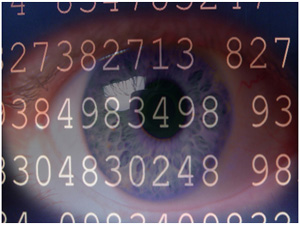



Date:12/10/12
 That is the message of a popular viral video produced by the Belgian Federation of the Financial Sector (Febelfin), which has so far been seen by more than one-and-a-half million people, the Computing reported.
That is the message of a popular viral video produced by the Belgian Federation of the Financial Sector (Febelfin), which has so far been seen by more than one-and-a-half million people, the Computing reported.
In it, members of the public are invited to a very special mind-reading conducted by a charismatic grey-haired mystic called “Dave”. As the ham actor gets into his stride, more and more compelling information about the lives of his clients is spilled onto the table:
“I see a school in Antwerp”... “A house for sale”... “Your best friend’s name is Julie”... “Interesting love life – I see, three? Four people?”
But Dave leaves the best until last: “I see a negative [bank] balance”... “Last month, you spent €200 on alcohol”... “€300 on clothes”.
And then he reads out their bank account numbers, before the secret of his mind-reading power is revealed: a room full of computers operated by balaclava-clad hackers who (supposedly) had been feeding the information to the phony mind-reader in real time.
The video was intended to warn people against making available excessive amounts of what ought to be private information about themselves online, and the ease with which such data can be used to break into email addresses, commerce sites and, ultimately, bank accounts.
‘You have NO privacy. Get over it’
 That is the message of a popular viral video produced by the Belgian Federation of the Financial Sector (Febelfin), which has so far been seen by more than one-and-a-half million people, the Computing reported.
That is the message of a popular viral video produced by the Belgian Federation of the Financial Sector (Febelfin), which has so far been seen by more than one-and-a-half million people, the Computing reported.In it, members of the public are invited to a very special mind-reading conducted by a charismatic grey-haired mystic called “Dave”. As the ham actor gets into his stride, more and more compelling information about the lives of his clients is spilled onto the table:
“I see a school in Antwerp”... “A house for sale”... “Your best friend’s name is Julie”... “Interesting love life – I see, three? Four people?”
But Dave leaves the best until last: “I see a negative [bank] balance”... “Last month, you spent €200 on alcohol”... “€300 on clothes”.
And then he reads out their bank account numbers, before the secret of his mind-reading power is revealed: a room full of computers operated by balaclava-clad hackers who (supposedly) had been feeding the information to the phony mind-reader in real time.
The video was intended to warn people against making available excessive amounts of what ought to be private information about themselves online, and the ease with which such data can be used to break into email addresses, commerce sites and, ultimately, bank accounts.
Views: 944
©ictnews.az. All rights reserved.Similar news
- Cellphone Use May Raise Cancer Risk
- Australian police pushes cyber safety education
- Vietnam aims to lead in e-government
- Senate Website Gets Hacked
- US builds net for cyber war games
- Japan enacts anti-computer virus law
- India passes law vs e-waste
- Anonymous Declares War On The City Of Orlando
- Microsoft highlights evolving dangers as online identity data proliferates
- Consumers want internet security to be provided by banks
- Government facilities targets of cyber attack
- South Korean web attacks might been war drill
- Sri Lanka to Establish National Passport Database to Increase Border Security
- Hi-tech crime agencies set to employ information security professionals
- Phone hacking and online campaign bring down the News of the World





















